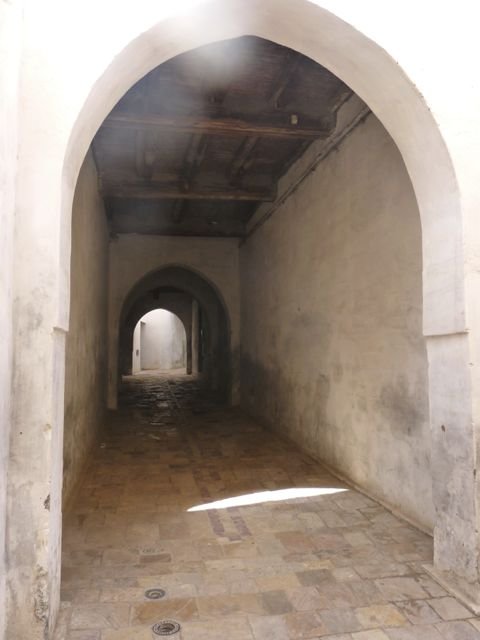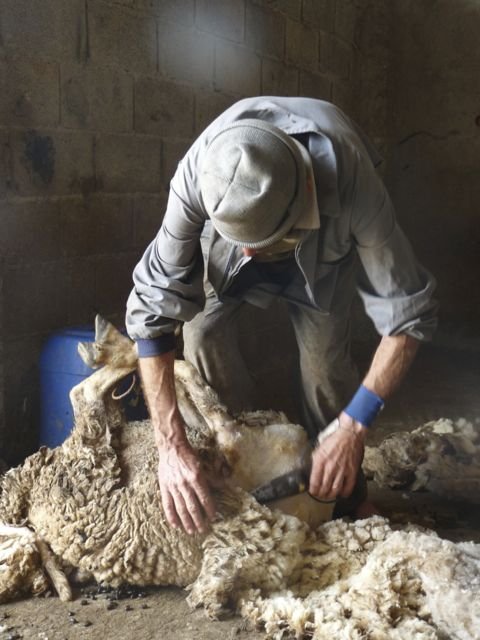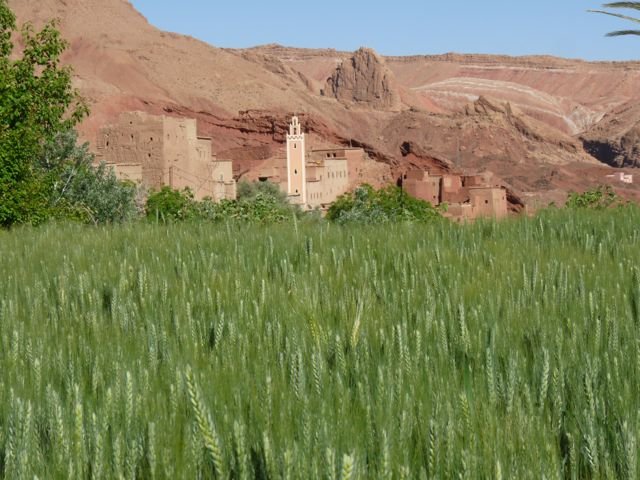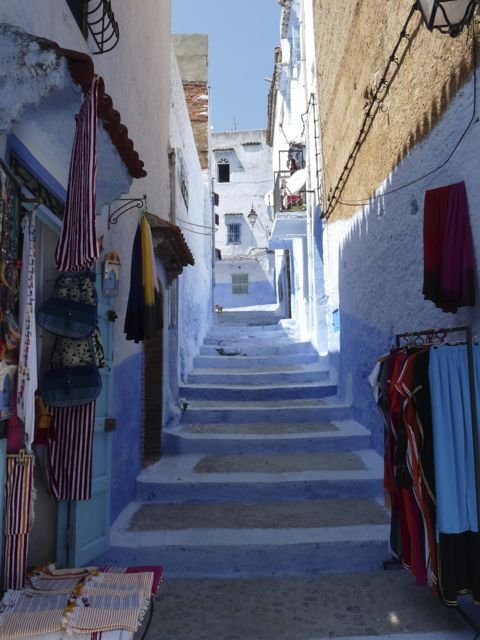field trip to Kasba Tadla, Morocco
 In May I had the chance to take part in a field study in Kasba Tadla, Morocco which I combined with two weeks of travelling across this beautiful country. Lazy blogger I am, I didn't quite allocated the time to write about it - apart from diary entries and the research report.Alas, it was my first stay south of the Mediterranean sea. And while I leave the description of the beautiful landscapes that change dramatically as you cross the country away from the coast, south through a chain of several mountain ranges (being the Rif mountains and the numerous manifestations of the Atlas) right into the Sahara as well as a portrait of the rich cultural heritage to the travel writing trade (as well to my photography and real-life in-your-face story-telling), I'd like to point out that Morocco is probably a good start if you aim to leave the European bubble without feeling completely lost and helpless. Face it, it is some beautiful country and if you're priviledged enough to be on a vacation and not having to make a living, it's the most relaxing place I can think of. "Très tranquille" as they say. Actually, I'd like to make the point, that even if you HAVE TO make a living, it can be a very relaxing place. I'm not going to romanticize the life of Moroccan peasants and city dwellers alike. Most people we've talked to gave accounts on their hardships, the daunting unemployment and inapt politicians. However, most people in Morocco alloted time for the most basic yet important thing: time spent in community with friends and strangers alike. Being invited by complete strangers for a good "thé à la menthe" made me wonder, what I do with all the time in my life.Our research was titled "Urban primary production of food." Originally, we meant to work on urban subsistence production. However, we began to question the viability of the term "subsistence" in this specific context. Unlike in Europe, the distinction of the two domains of labor for subsistence and labor for profit is highly blurred. It is not too say, the term is completely inapplicable. It would "simply" require a new re-definition which we didn't quite have the time for in this one week field trip. One of the things that screams: "Further Research!"In three of Kasba Tadla's quarters, Hay Dakhla, Hay Berraka and Dar Draouech, we surveyed fruit trees, livestock husbandry and kitchen gardens. Thinking about the effort that grassroots movements all across the industrialized countries invest in order to push forward (small-scale) food production in cities, we were amazed to see, it is all in place in Kasba Tadla. So who is the developed country? Another term that lost its suitability. At the same time, we were shocked to realize, how much these practices are frowned upon by the local government. They dismiss subsistence as something backward of semi-wild, rural peasants that doesn't fit into a modern city. It is cynical: A group of European academics come to Morroco to critize a political position that had been implemented by European academics (and other colonialists) in the first place. How can we know, we're right this time?To sum up, we have shown that primary production of food takes place to a significant amount in Kasba Tadla. While it doesn't allow for self-sufficiency, it contributes to local resilience by reducing the amount of food that needs to be imported, by preserving local knowledge on food production and processing and by strengthening human relationship s1in the community. It is also of outstanding cultural value and, thus, adds to the quality of life of the population of Kasba Tadla.
In May I had the chance to take part in a field study in Kasba Tadla, Morocco which I combined with two weeks of travelling across this beautiful country. Lazy blogger I am, I didn't quite allocated the time to write about it - apart from diary entries and the research report.Alas, it was my first stay south of the Mediterranean sea. And while I leave the description of the beautiful landscapes that change dramatically as you cross the country away from the coast, south through a chain of several mountain ranges (being the Rif mountains and the numerous manifestations of the Atlas) right into the Sahara as well as a portrait of the rich cultural heritage to the travel writing trade (as well to my photography and real-life in-your-face story-telling), I'd like to point out that Morocco is probably a good start if you aim to leave the European bubble without feeling completely lost and helpless. Face it, it is some beautiful country and if you're priviledged enough to be on a vacation and not having to make a living, it's the most relaxing place I can think of. "Très tranquille" as they say. Actually, I'd like to make the point, that even if you HAVE TO make a living, it can be a very relaxing place. I'm not going to romanticize the life of Moroccan peasants and city dwellers alike. Most people we've talked to gave accounts on their hardships, the daunting unemployment and inapt politicians. However, most people in Morocco alloted time for the most basic yet important thing: time spent in community with friends and strangers alike. Being invited by complete strangers for a good "thé à la menthe" made me wonder, what I do with all the time in my life.Our research was titled "Urban primary production of food." Originally, we meant to work on urban subsistence production. However, we began to question the viability of the term "subsistence" in this specific context. Unlike in Europe, the distinction of the two domains of labor for subsistence and labor for profit is highly blurred. It is not too say, the term is completely inapplicable. It would "simply" require a new re-definition which we didn't quite have the time for in this one week field trip. One of the things that screams: "Further Research!"In three of Kasba Tadla's quarters, Hay Dakhla, Hay Berraka and Dar Draouech, we surveyed fruit trees, livestock husbandry and kitchen gardens. Thinking about the effort that grassroots movements all across the industrialized countries invest in order to push forward (small-scale) food production in cities, we were amazed to see, it is all in place in Kasba Tadla. So who is the developed country? Another term that lost its suitability. At the same time, we were shocked to realize, how much these practices are frowned upon by the local government. They dismiss subsistence as something backward of semi-wild, rural peasants that doesn't fit into a modern city. It is cynical: A group of European academics come to Morroco to critize a political position that had been implemented by European academics (and other colonialists) in the first place. How can we know, we're right this time?To sum up, we have shown that primary production of food takes place to a significant amount in Kasba Tadla. While it doesn't allow for self-sufficiency, it contributes to local resilience by reducing the amount of food that needs to be imported, by preserving local knowledge on food production and processing and by strengthening human relationship s1in the community. It is also of outstanding cultural value and, thus, adds to the quality of life of the population of Kasba Tadla.




